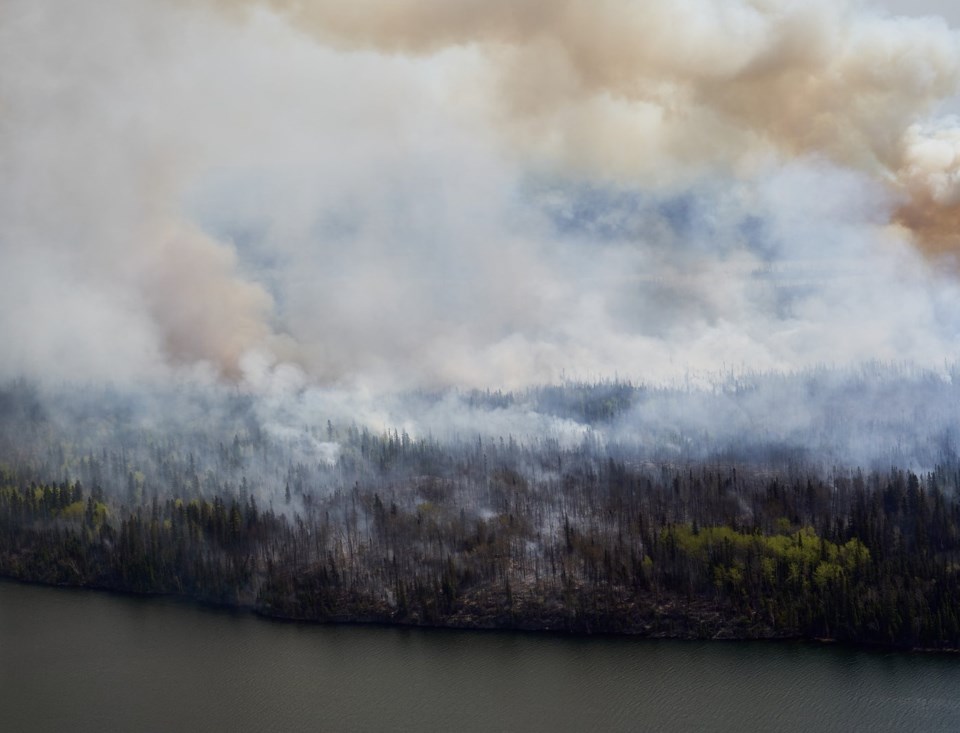WINNIPEG — More than 1,000 vulnerable residents in northern Manitoba have been sent south as wildfire smoke encroaches on some First Nations communities.
Smoke from an out-of-control fire in northeastern Manitoba has created issues in Red Sucker Lake, Wasagamack and God's Lake First Nations.
The province said fire is not threatening the communities, but smoke is a health risk for the elderly, young children and people with respiratory issues.
"The direction of the wind and the humidity could allow the smoke to stay closer to the ground and be trapped in some of those communities," said Earl Simmons, the provincial wildfire service director.
"We're sending water bombers, and our crews are out there trying to prevent that fire from reaching any of those communities and the hydro line."
About 1,400 residents from the three First Nations were sent to Winnipeg or Brandon beginning Friday, said Simmons.
He added the evacuations are "dynamic and fluid" at this time.
Another nearby community, Manto Sipi Cree Nation, started evacuations Tuesday for members with the highest health concerns, the Canadian Red Cross said.
The organization is supporting more than 700 evacuees from the affected communities, as well as Marcel Colomb First Nation, which ordered a complete evacuation last week due to another wildfire.
Manitoba Keewatinowi Okimakanak, which represents most northern First Nations in the province, said this year's evacuations have gone ahead with minimal obstructions.
“The leadership in these communities have been very strong and very proactive. That really makes a difference so that we’ll minimize any kind of panic or chaos when they are evacuating the communities," Grand Chief Garrison Settee said on Tuesday.
The advocacy organization is working with food bank Harvest Manitoba to get supplies to evacuees.
Simmons said there have been roughly 165 wildfires so far this year, with 50 currently active. That's below the average of 277 for the same time in previous years.
"This fire activity just started up in the last few weeks. Prior to that, we had a good month or so with no fire activity and a lot of rain across the province," said Simmons.
"We've got a fair bit of dry lightning coming through areas ... because of these dry conditions. They're starting fires. We're trying to jump on those fires before they get going."
Fire crews from Ontario and water bombers from Quebec have been brought in to help with firefighting efforts.
This report by The Canadian Press was first published July 30, 2024.
Brittany Hobson, The Canadian Press



